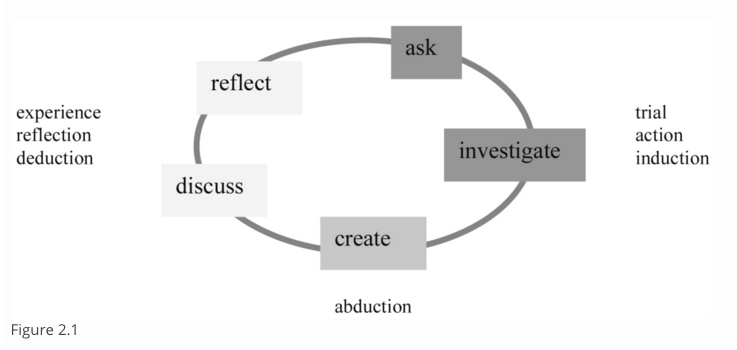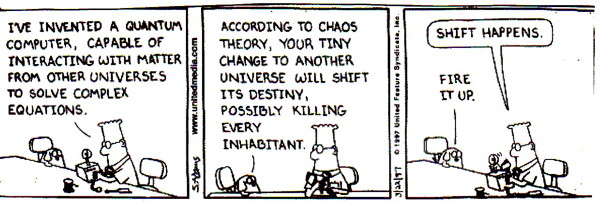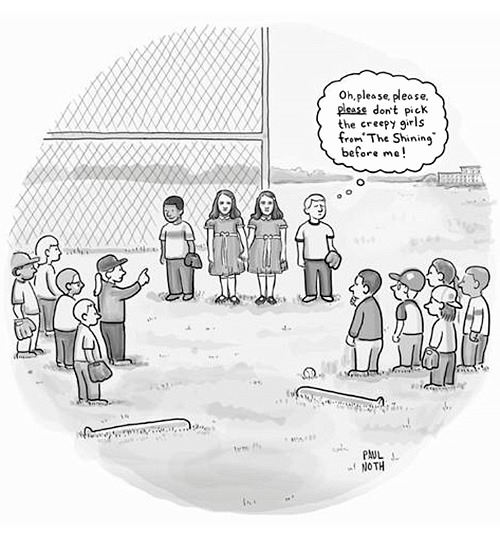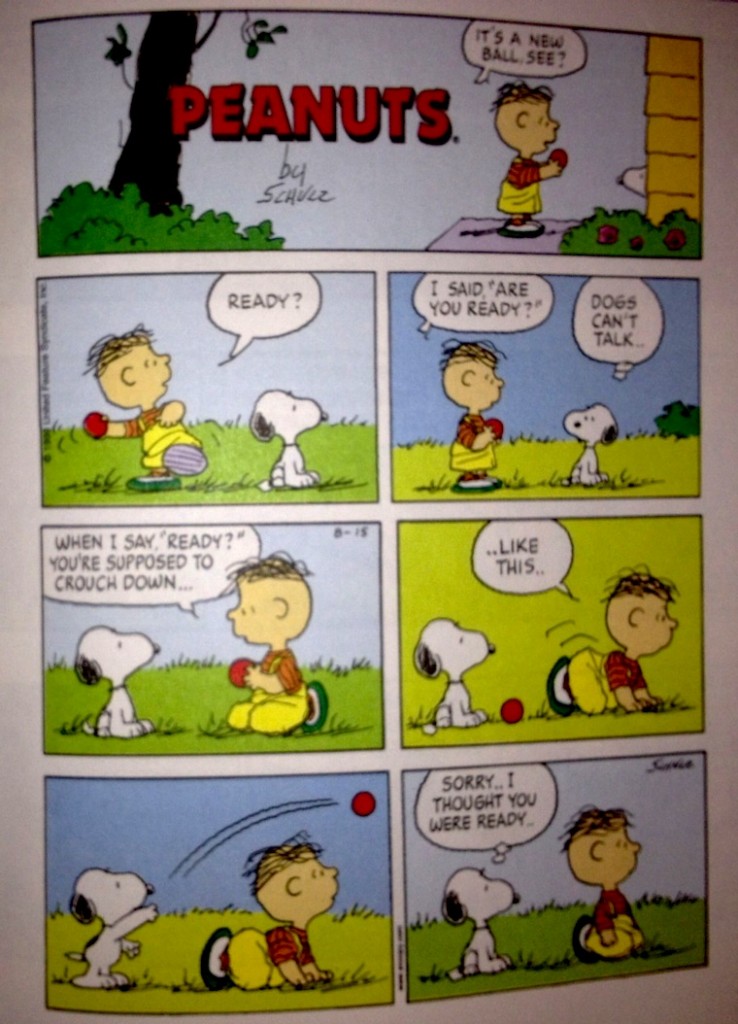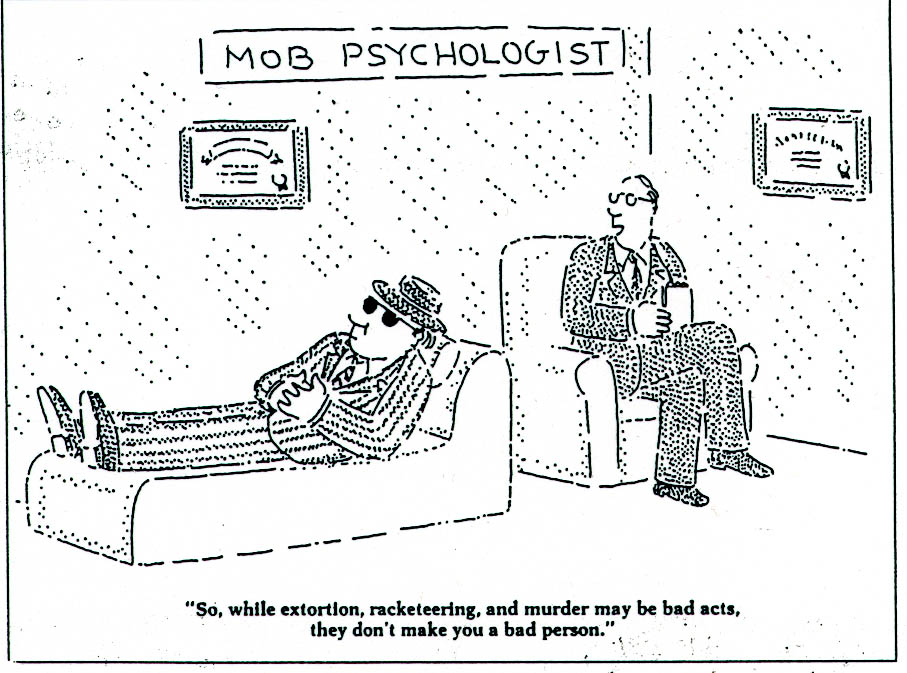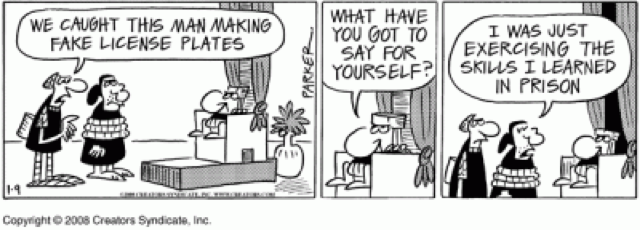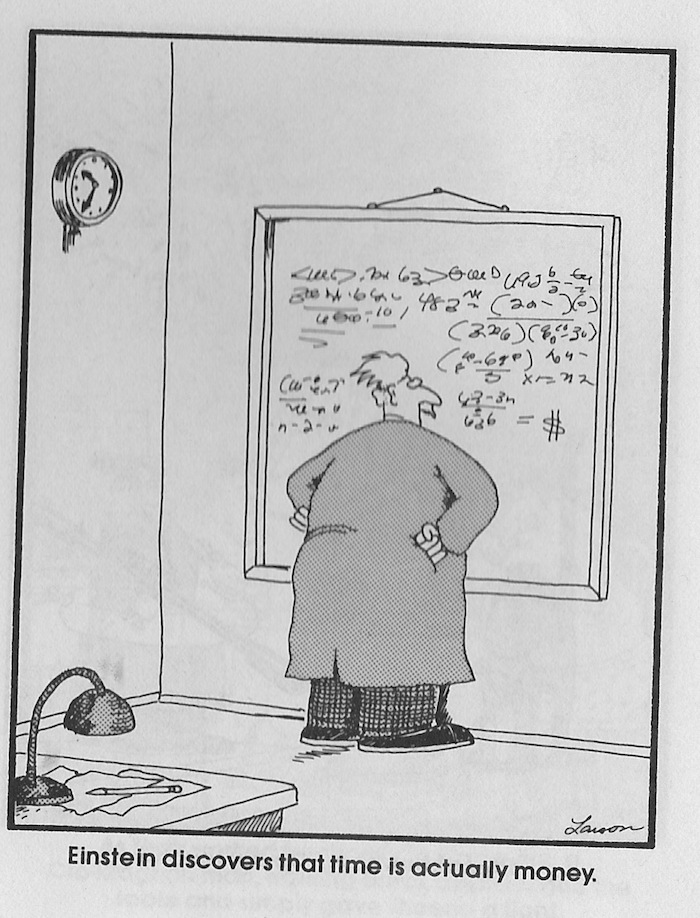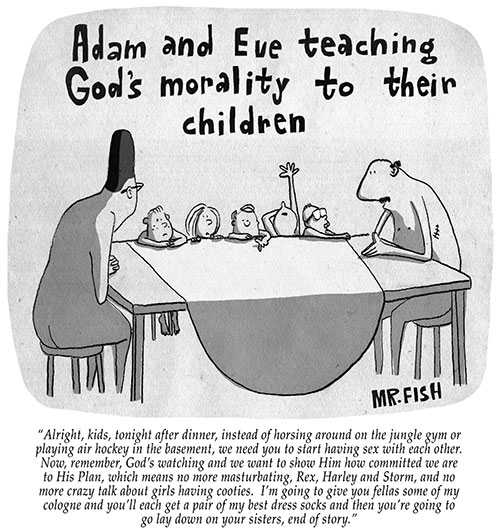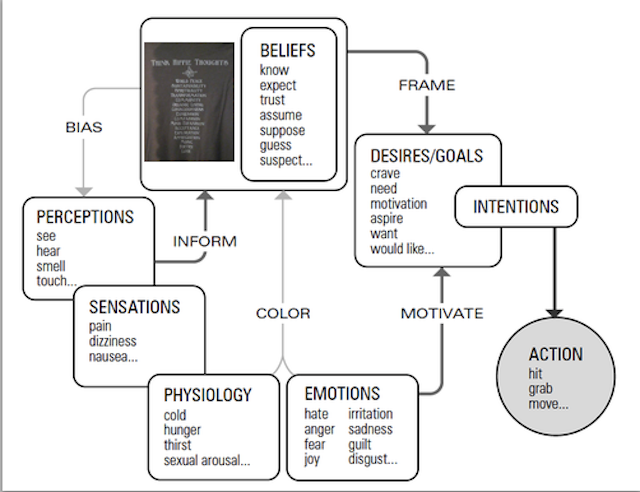Kevin Parry
Category Archives: humor
A Magic Trick: Explain By Creating
In trickster’s case, how did mental fakery come to replace incarnate fakery?
It is one thing for trypanosomes to change their skins; another for Raven to become a leaf floating in spring water; another still for storytellers to have imagined Raven in the first place, or for one of us to reimagine him. Before picking these strands apart, however, we should remember that the mythology itself asks us to confuse them. Coyote stories point to coyotes teaching about the mind, the stories themselves look to predator-prey relationships for the birth of cunning. These myths suggest that blending natural history and mental phenomena is not an unthinkable conflation, but on the contrary, an accurate description of the way things are. To learn about intelligence from Coyote the meat thief is to know that we are embodied thinkers. If the brain has cunning, it has it as a consequence of appetite; the blood that lights the mind gets its sugars from the gut.
-Lewis Hyde, Trickster Makes This World: Mischief, Myth, and Art.
The subject becomes a game that hides through and in his cause from his cause, the (external) precondition laying bare the (internal) foundation. – Julie Kristeva
The tracking that any [image] instrumentalizes is an adventure that is always immediate, happening now, registering the dynamics of belief.
(adapted, substituting |image| for |text|) via, -Elaine Jahner, “Trickster Discourse and Postmodern Strategies.”)
“Play around with it, intentionally.” That would be the clue. I’m wandering around the following: participation, experience of art, play, cleverest trick.
If you could give up tricks and cleverness, this would be the cleverest trick! (version of Rumi, John LeMoyne)
An example of a clever trick in the experience of art is any expert critical opinion that is by (socially-constructed) necessity blinded to, unbounded from, the actuality of the embodied knowing which emerges from consciousness being aware and present as a matter of experiencing art, or, experiencing any ‘scene,’ so-to-speak.
Opinions like this are like standing at the end of the diving board and not wanting to dive in.
Do playful systems know that they play? [pdf]
Michael Straeubig, Plymouth University
The Philosophy of Computer Games Conference, Malta 2016
From autopoiesis to neurophenomenology: Francisco Varela’s exploration of the biophysics of being [pdf]
Antoine Lutz, et al 2003
Toward a neurophenomenology as an account of generative passages: A first empirical case study [pdf]
Antoine Lutz
LENA – Neurosciences Cognitives et Imagerie Cérébrale 2002
(*) A cybernetic model of design research: Towards a trans-domain 1 of knowing
Wolfgang Jonas, The Routledge Companion to Design Research 2014
Zeitgeist, Summer 2016
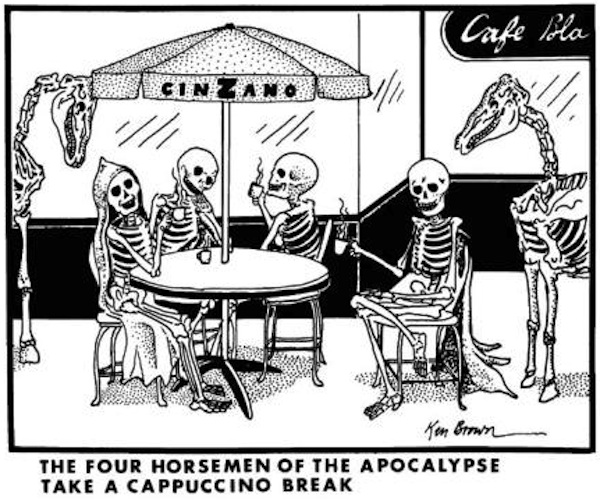

The risk of inner experience, the adventure of the spirit, is in any case alien to most human beings. ~Carl Jung; Memories, Dreams and Reflections

The Plan
ABC from Alan Warburton on Vimeo.
An old Zen master always told this fable to unserious students: Late one night a blind man was about to go home after visiting a friend.
“Please,” he said to his friend, “may I take your lantern with me?”
“Why carry a lantern?” asked his friend.
“You won’t see any better with it.”
“No,” said the blind one, “perhaps not. But others will see me better, and not bump into me.”
So his friend gave the blind man the lantern, which was made of paper on bamboo strips, with a candle inside. Off went the blind man with the lantern, and before he had gone more than a few yards, “Crack!” — a traveler walked right into him. The blind man was very angry.
“Why don’t you look out?” he stormed. “Why don’t you see this lantern?”
“Why don’t you light the candle?” asked the traveler.
Filed under creative captures, experiential learning, humor, zen
Impossibly Pretentious Academic Titles From the Basement
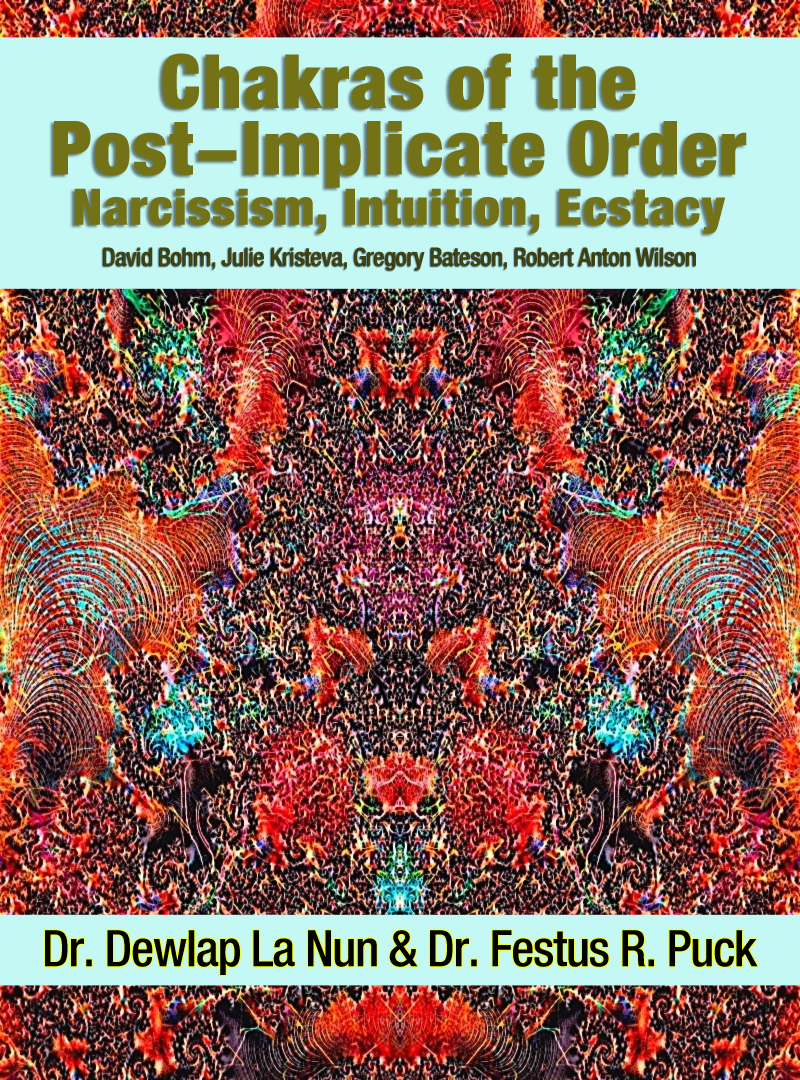
New edition forthcoming, ?
(obviously published by the POST-ACADEMIC PRESS)
soundtrack:
Filed under creative captures, dada, friends, humor
POMO Fast Food
I’ve been seeing mentions of the ‘world war’ between Apple, Google and Facebook with the goal of one of the companies taking over the internet. I suppose this means that when such hegemony is achieved the internet’s interface will remain slow, buggy, and expensive.
Filed under cultural contradictions, humor
Snap Dogs
GEOLOGY, n. The science of the earth’s crust — to which, doubtless, will be added that of its interior whenever a man shall come up garrulous out of a well. The geological formations of the globe already noted are catalogued thus: The Primary, or lower one, consists of rocks, bones or mired mules, gas-pipes, miners’ tools, antique statues minus the nose, Spanish doubloons and ancestors. The Secondary is largely made up of red worms and moles. The Tertiary comprises railway tracks, patent pavements, grass, snakes, mouldy boots, beer bottles, tomato cans, intoxicated citizens, garbage, anarchists, snap-dogs and fools.
SATAN, n. One of the Creator’s lamentable mistakes, repented in sashcloth and axes. Being instated as an archangel, Satan made himself multifariously objectionable and was finally expelled from Heaven. Half-way in his descent he paused, bent his head in thought a moment and at last went back. “There is one favor that I should like to ask,” said he.
“Name it.”
“Man, I understand, is about to be created. He will need laws.”
“What, wretch! you his appointed adversary, charged from the dawn of eternity with hatred of his soul — you ask for the right to make his laws?”
“Pardon; what I have to ask is that he be permitted to make them himself.”
It was so ordered.
via The Devil’s Dictionary by Ambrose Bierce
Pecking Order
I likely was around the age of ten–1964–when my friends and I started playing kick ball on the asphalt diamond at Coventry School during the summer. This gave me the opportunity to be a self-assessor, and, also to step back a bit from process of making teams, to wonder why my above average performance never was reflected in where I was chosen in the picking of players. I asked my dad. I forgot what he told me.
A few years later, and for a few years, I played baseball on the long gone diamond at Fairfax School. Because I had a good arm, I played third base. But, I was a terrible hitter. I usually was picked in the first third of picks.
Eventually, one leaves the world of pick up ball behind. I played for Roxboro Junior High’s football team. Mike Baum and myself were the blocking fullbacks, opening holes for the storied Tom Olmstead and Victor Wong. We collapsed a Wiley Jr High team’s rushers in the last series of the last quarter of the 1968 season. This helped Olmstead score the team’s first touchdown of the soon-to-be realized 0-5 season. The coaches were idiots.
In high school, I proved mediocre at: football, cross-country*, and made one appearance as a side-arming reliever on the JV baseball team in the spring of 1970:
walked the first batter
hit the second batter
walked the third batter
gave up a three run triple to the fourth batter
Infinite ERA, right? That’s something!
The next year a classmate Jonathan Bass created an intramural softball league (at Hawken School) and enlisted me to help organize it and promote it to my fellow juniors. Somehow he got the Head of the Upper School and Athletic Director to approve it as an alternative to playing a varsity sport or PE class. Participation skyrocketed diue to this late breaking development.
I played first and third base and because I was the team captain, batted myself in the top third of the order. I kept the statistics for the entire league. Somewhere is the record of my performance in every season I’ve played softball since the spring of 1971.
In 1975 I played with the Wizard of Oz team in Vermont. It was the team’s inaugural season. I know I batted ninth and played short outfield, and sometimes pitched, and sometimes played catcher. I was twenty and two years away from my first really enjoyable sportsman’s experience.
Many American men have a sense of what is a pecking order. It might be interesting to ask him how early in their athletic career did this sense begin to be developed.
*My senior year, I recollect that the cross country team had a record of 14-1. I was roughly the eighth or ninth runner on the team, and injured my self in a meet at University School. This led to the single mention of my athletic performance in the yearbook: Stephen Calhoun ran well with the cross country team until he got smart and broke his ankle.
Teaching Cartoon: Enactivism I.
Enactivism, a combination of Constructivism and Embodied Cognition, is a theory wherein cognition and environment are inseparable, and learning is drawn from the interaction between learner and environment. It is rooted in the phenomenological work of Merleau-Ponty and Bateson’s biological perspective work. Enactivism is underpinned by the thought that actions are not simply a display of understanding, but they are themselves understandings. This makes it possible to observe how humans learn alone and in groups, and how participation in any shared actions contribute to an overall sense of identity. For the enactivist, what is imagined, what is fantasized, what is guessed at, and what is intuited, are understood as being extremely important to meaning making and contributing to knowledge and what is learned. Cognition is an evolving interaction between systems; the cognitive system is a producer of meaning rather than a processor of information, as in constructivism. Learning is not about gaining information; instead, it is seen as an ongoing process of exploration about consciousness, self, context, and interactions of complex systems in order to adapt to the evolving world. Action and mental process are inseparable; action is knowledge. Applied to an educational context, enactivism stresses that reality and mind are interlinked and cannot be separated; as a result, learning should never occur as isolated events in a classroom. Bernier and Busby 510Wiki Technology-Enhanced Learning Environments
(bold emphasis is my own.) Bernier and Busby ‘s definition is succinct. Definitions of enactivism vary. Wikipedia’s initial definition:
Enactivism argues that cognition arises through a dynamic interaction between an acting organism and its environment. It claims that our environment is one which we selectively create through our capacities to interact with the world. “Organisms do not passively receive information from their environments, which they then translate into internal representations. Natural cognitive systems…participate in the generation of meaning …engaging in transformational and not merely informational interactions: they enact a world.”
This is okay, but its use of participate is question-begging. Yet, definitions of enactivism are, by definition, question-begging too, because each definition terminates in a particular evolving interaction. This is hardly a global termination because what enactivism can be said to be is the best explanation given the integrity of the specific action of grasping what it is enactivism. There is here, then, a recursive aspect. (I would suggest there is here a 1st and 2nd order biosemiotic bridge too. The synthesis of enactivism and biosemiotics has yet to be accomplished.)
Biosemiosis, [is the] processes whereby living systems identify and interpret environmental states or events as signs – visual, olfacory, auditive etc. – [and use] them to guide their activities. (Jesper Hoffmeyer)
Teaching Cartoon: Post-Structuralism

From The 5th Wave Rich Tennant (1992)
fracture, fragment, fractal, fragile
Oedipus presupposes a fantastic repression of desiring-machines.
It is not a question of denying the vital importance of parents or the love attachment of children to their mothers and fathers. It is a question of knowing what the place and the function of parents are within desiring-production, rather than doing the opposite and forcing the entire interplay of desiring-machines to fit within the restricted code of Oedipus.
Guattari/Deleuze – Anti-Oedipus
Footnote, page 371, A-O
*See ail of John Cage’s work, and his book Silence (Middletown, Conn.: Wesleyan University Press, 1961): “The word experimental is apt, providing it is understood not as descriptive of an act to be later judged in terms of success and failure, but simply as of an act the outcome of which is unknown” (p. 13). And regarding the active or practical notions of decoding, of deconstruction, and of the work as a process, the
reader is referred to the excellent commentaries of Daniel Charles on Cage, “Musique et anarchie,” in Bulletin de la Societefr ancaise de philosophie, Jul)’ 1971, where there is violent anger on the part of some participants in the discussion, reacting to the idea that there is no longer any code.
Be careful!
Filed under humor, technology
Crown of Creation
Filed under creative captures, history, humor
Esoteric Intra-Image Dialectic
Not all of “it” is here in this trio of cross-commenting images, yet, some of “it” is here.
On the other hand. . .
Words
The disciples were absorbed in a discussion of Lao-tzu’s dictum:
“Those who know do not say; Those who say do not know.”
When the Master entered, they asked him exactly what the words meant.
Said the Master, “Which of you knows the fragrance of a rose?”
All of them knew.
Then he said, “Put it into words.”
All of them were silent.
Filed under humor, I Ching, visual story
Being a Hippie Changes Something
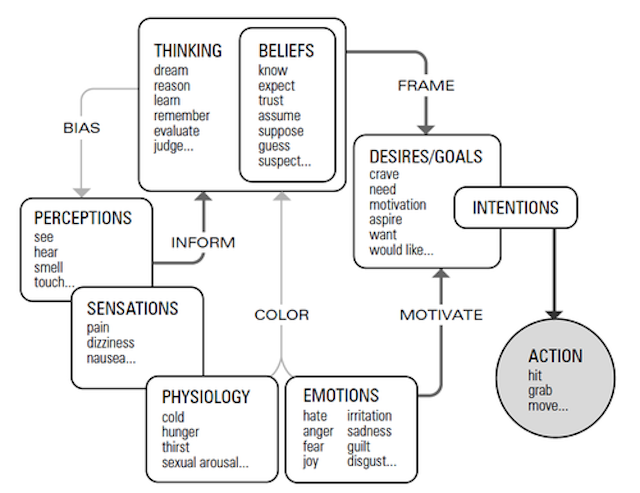
This schema comes from a Tumblr blog. I discovered it via a Google image search.
I discovered this graphic via Google image search.
I put them together.
There is no reason to take a schema seriously if its context is a Google image search. I know because of my skillfulness in psychology that color used as a verb won’t cut it as an apt description of the psychological process that underlies intentional action. But, heck, I like the way the hippie graphic can be plugged in to the schema.
So, as hippies sometimes do, I just plug it in.
Damn, I am mostly bald forty-seven years after the Summer of Love.
http://youtu.be/ZqXmBy1_qOQ
I sometimes answer the question, What is your background? this way:
Being a hippie, and, music.
Many times this response compels a questioner of my age cohort to lean forward and in a near whisper reply:
I used to be a hippie.
Hippies were made fun of back in their heyday, and, old hippies remain low hanging targets. In the late nineties ‘hippie’ became the term on the internet for lumping liberals with progressives. This eventually led to concise formulas such as: Obama becoming President is all the fault of the hippies.
Although I moved to Vermont at 19 and spent formative years as a hippie in that most hippie-flavored state, its political blueness is the exception to the longstanding geography that demonstrates clearly that contemporary hippiedom is, quantitatively speaking, almost entirely a cosmopolitan phenomena.
For me, the essential character of my core hippie lesson is: experiment and retain negative capability against the pressure supplied by opportunities for belief.
Or, as John Lilly put it:
My beliefs are unbelievable.
Filed under cultural contradictions, history, humor, personal
Why Do Fallibilists and Nominalists Have Anything to Say At All?
fallibilism
- The basic idea: we can know things which are not entailed or guaranteed to be true by our evidence / reasons.
- Fallibilism gives us a response to Unger-style certainty skepticism: fallibilists can say that knowledge is com- patible with some degree of uncertainty. Does fallibilism give a response to argument-from-ignorance skep- ticism? Not so clear: there the problem seems to be that you don’t know that you’re not a BIV (or whatever), and it’s not obvious how the fallibilist can help with that.
- Cohen’s definition of fallibilism: fallibilists reject the claim that S knows that P on the basis of reason R only if R entails Q.
lottery problems
- Fallibilists say you can know that P on the basis of reason R, even though R does not entail that P. Still, we want to say that you can only know P on the basis of R when R somehow supports belief in P. What’s the nature of that support?
- First idea: R makes P probable. There is a problem here with lotteries. I know that the chances of winning the PowerBall are 1 in 300 million; this knowledge makes it very probable that your ticket has lost. Still, it doesn’t seem that I can know that your ticket lost simply by knowing the odds.
- Interestingly, though, the problem here can’t be identified just as the fact that R doesn’t imply that there no chance I’m wrong about P. I read the winning number in the paper, and see that it’s not yours, and now I know: you lost. But we’ll all acknowledge that there’s a chance that the paper has a misprint.
excerpted from: Why Skeptical Arguments Matter & How To Be A Fallibilist Philosophy 311: Problems of Knowledge, Professor Geoff Pynn, Northern Illinois University
Filed under humor, philosophy

